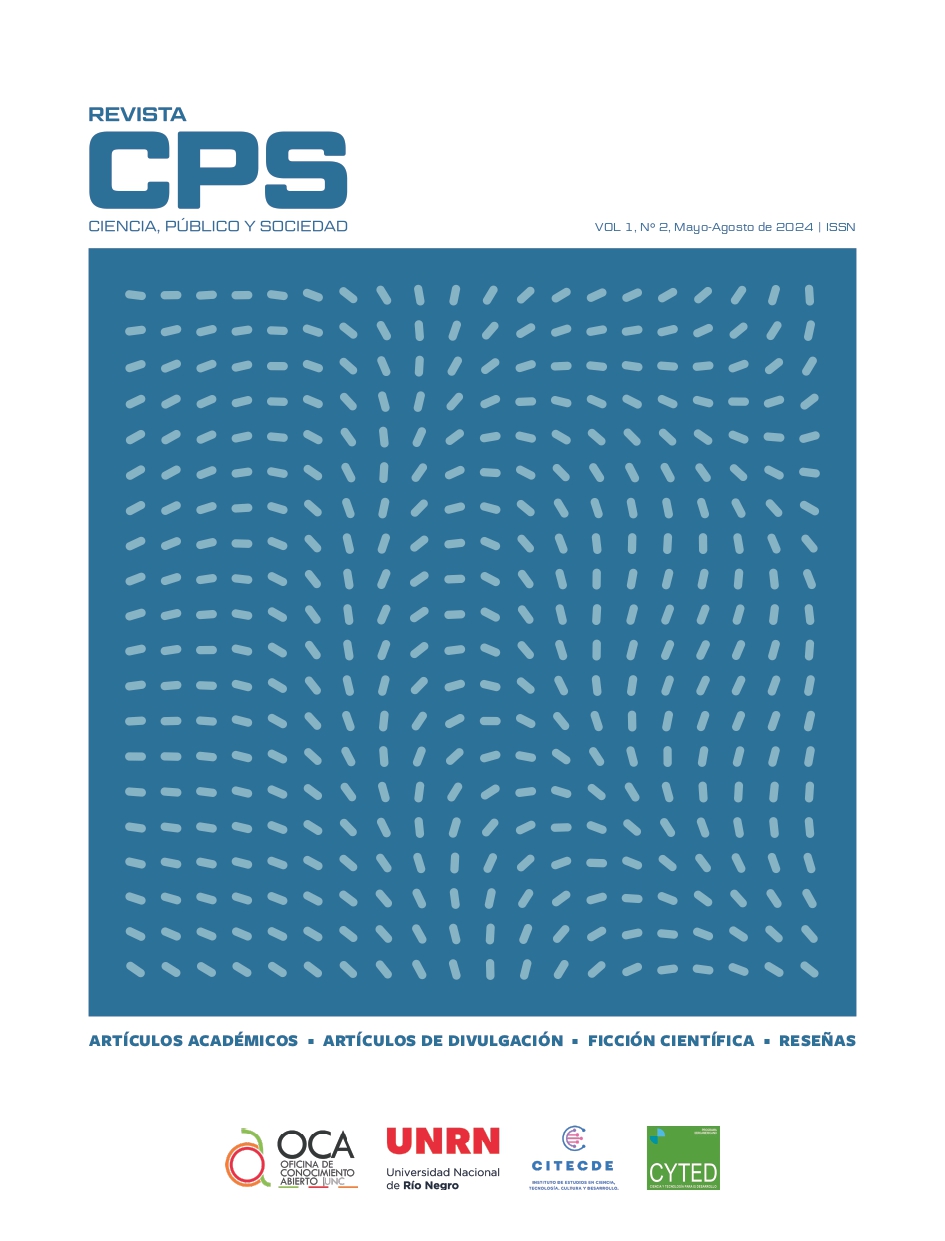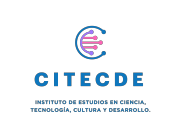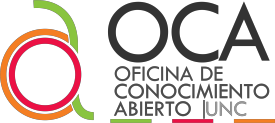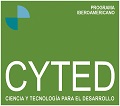Horizontal model of knowledge mobilisation: a proposal to incentivise research agendas and public policies on science, technology, innovation and health
Keywords:
knowledge mobilisation, national health systems, diabetes mellitus, researchersAbstract
The literature on the processes of transfer, mobilisation, and appropriation of knowledge produced in universities and public research centres has yielded results that allow for a better understanding of the benefits, obstacles, and determining channels of such processes. Within this literature, emphasis has been placed on the differences between agents, researchers, and institutions. Although there is a wide range of terms to address the problem of the mobilisation of knowledge generated in scientific communities, we consider it relevant to elucidate and stylise a concept of knowledge mobilisation in order to understand the process, locate the actors (e.g. clinicians, managers, policymakers, patients) involved (Graham et al., 2018), and understand the obstacles encountered in the healthcare setting. Therefore, based on a search, founded on the text mining technique (Silge & Robinson, 2016), the search, extraction, and critical analysis of publications in indexed journals was carried out, which, for this case, refer to research-based knowledge mobilisation in the health sector from 2010 to 2023 (although the term was detected as having emerged in 2007). The aim of this article is, therefore, to critically discuss the concept of knowledge mobilisation and propose a horizontal model of knowledge mobilisation to incentivise research agendas and public policies on Science, Technology, Innovation, and Health.
References
Aguilar Villanueva, L.F. 1993. “Estudio introductorio” en Aguilar L.F. (Ed.), Problemas público y agenda de gobierno. México: Porrúa, pp. 15-72.
Alonso, M., Perrotta, D. V., y Riccono, G. 2022. ¿Ayudar al Estado a pensar?: sobre las dinámicas de interacción entre la investigación social y la política. Analecta Política, 12(23), pp. 1-26.
Alzate, M.L y Romo, G. 2017. “La agenda pública en sus teorías y aproximaciones metodológicas. Una clasificación alternativa”, Revista Enfoques: Ciencia Política y Administración Pública, Vol. XV, núm. 26, 13-35.
Barboza-Palomino, M., Caycho, T. y Castilla-Cabello, H. 2017. “Políticas públicas en salud basadas en la evidencia. Discusión en el contexto peruano”, Salud Pública de México, 59(1), 2-3.
Bardach, E. 1993. “Problemas de la definición de problemas en el análisis de políticas” en Aguilar (Ed.), Problemas públicos y agenda de gobierno. México: Porrúa, pp. 215-230.
Begun JW, Zimmerman B, Dooley K. In: Mick S, Wyttenbach M, editors. 2003. “Health care organizations as complex adaptive systems”. In Advances in health care organization theory, vol. 253. San Francisco: Jossey-Bass; p. 253–88.
Best A, Holmes B. 2010. “Systems thinking, knowledge and action: towards better models and methods”. Evid Policy; 6:145–59.
Bua, A. 2012. “Agenda Setting and Democratic Innovation: the Case of the Sustainable Communities act 2007”, Politics, 32 (1), 10-20.
Casar, M.A. y Maldonado, C. 2010. “Formación de agenda y proceso de toma de decisiones. Una aproximación desde la ciencia política” en Merino, M. y Cejudo, G. (Comps.), Problemas, decisiones y soluciones. Enfoques de política pública. Fondo de Cultura Económica-CIDE, pp. 1-20.
Castillo, A., Velasco-Morón, A., Arroyo-Arroyo, Y., Aranda-Fragoso, A., Aguilar-Román, E., Pérez-Escobedo, M., y Vega-Rivera, J. H. 2021. Two tropical research stations in Mexico: 50 years of contributions and challenges. Environmental Challenges, 3, 100037.
Cejudo, G. 2010. “Discurso y políticas públicas. Enfoque constructivista” en Merino, M. y Cejudo, G. (Comps.), Problemas, decisiones y soluciones. Enfoques de política pública. México: Fondo de Cultura Económica-CIDE, pp. 93-126.
Charide, R., Stallwood, L., Munan, M. et al. 2023. “Knowledge mobilization activities to support decision-making by youth, parents, and adults using a systematic and living map of evidence and recommendations on COVID-19: protocol for three randomized controlled trials and qualitative user-experience studies”. Trials 24, 27. https://doi.org/10.1186/s13063-023-07067-9
Chertorivski, S. y Fajardo, G. 2012. “El sistema de salud mexicano: ¿requiere una transformación?”, Gaceta Médica de México, Secretaría de Salud, pp. 148-502.
Chughtai S, Blanchet K. 2017. “Systems thinking in public health: a bibliographic contribution to a meta-narrative review”. Health Policy Plan. 32: 585–94.
Cooper, A., MacGregor, S., y Shewchuk, S. 2021. A research model to study research-practice partnerships in education. Journal of Professional Capital and Community, 6(1), 44-63.
Corcuff, M., Routhier, F., Gamache, S., Fiset, D., Leblond, J., y Lamontagne, M. E. 2022. Implementation Determinants of Knowledge Mobilization within a Quebec Municipality to Improve Universal Accessibility. International Journal of Environmental Research and Public Health, 19(22), 14651.
De Savigny D, Taghreed A. 2009. Systems thinking for health systems strengthening. Alliance for Health Policy and Systems Research: World Health Organization; 2009.
Dutrénit, G, Natera, J.M., Vera-Cruz. 2019. Upgrading Institutional Capacities in Innovation Policies in Mexico: Choice, Design and Assessment: Case studies. México: Banco Interamericano de Desarrollo.
Equal Measure 2017. Harder+Company, Cultivating systems leadership in crosssector partnerships: lessons from the linked learning regional hubs of excellence, James Irvine Foundation. Available from: http://www.equalmeasure.org/wp-content/uploads/2017/08/Systems-Leadership-Issue-Brief-081017-FINAL.pdf.
Ferlie, E. 2022. AHSCs as Health Policy Transfer: Some Emergent Evidence from Australia Comment on Academic Health Science Centres as Vehicles for Knowledge Mobilisation in Australia? A Qualitative Study”. International Journal of Health Policy and Management, 11(6), 862.
García-Cruz, J.C., Dutrénit, G. y Vera-Cruz, A. (en prensa), “Factores institucionales, movilización de conocimiento e implementación de políticas públicas: la visión de los actores relevantes del sistema nacional de salud mexicano” en Vera-Cruz (coord), Generación, movilización y uso del conocimiento en diabetes mellitus 2 en México: Políticas públicas, agendas de investigación y aplicación del conocimiento.
Garside R, Pearson M, Hunt H, Moxham T, Anderson R. 2010. Preventing obesity using a ‘whole system’ approach at local and community level: PDG1. A report commissioned by NICE Centre for Public Health Excellence. Peninsula Technology Assessment Group (PenTAG), Peninsula Medical School, Universities of Exeter and Plymouth NICE Centre for Public Health Excellence 2010.
Hartling, L., Elliott, S. A., Buckreus, K., Leung, J., y Scott, S. D. 2021. Development and evaluation of a parent advisory group to inform a research program for knowledge translation in child health. Research Involvement and Engagement, 7(1), 1-13.
Harvey, B., Huang, Y. S., Araujo, J., Vincent, K., Roux, J. P., Rouhaud, E., y Visman, E. 2021. Mobilizing climate information for decision-making in Africa: Contrasting user-centered and knowledge-centered approaches. Frontiers in Climate, 2, 589282.
Hidayat, D., y Stoecker, R. 2021. Collective knowledge mobilization through a community-university partnership. Journal of Higher Education Outreach and Engagement, 25(2).
Kickbusch I, Gleicher D. 2012. Governance for health in the 21st century. World Health Organization.
Lanham HJ, Leykum LK, Taylor BS, McCannon CJ, Lindberg C, Lester RT. 2013. How complexity science can inform scale-up and spread in health care: understanding the role of self-organization in variation across local contexts. Soc Sci Med. 93:194–202.
Latulippe, K., LeBlanc, A., Gagnon, M. P., Boivin, K., Lavoie, P., Dufour, J. y Lamontagne, M. È. 2021. Organizational knowledge translation strategies for allied health professionals in traumatology settings: realist review protocol. Systematic Reviews, 10, 1-6.
Leyva, S. y Tabares, J. 2011. “Los observatorios como herramientas de gobierno en las políticas públicas: Descripción de sus orígenes, dinámicas y problemáticas”, en Leyva, S. (Ed.) La investigación de las políticas públicas contribuciones desde la academia, Medellín: Red Antioqueña de Políticas Públicas, pp. 181-207.
Lich KH, Ginexi EM, Osgood ND, Mabry PL. 2013. A call to address complexity in prevention science research. Prev Sci. 14:279–89.
Lorenc, F. 2005. “La sociología de los problemas públicos. Una perspectiva crítica para el estudio de las relaciones entre la sociedad y la política”, Nómadas, 12 (2), en línea.
Luke DA, Stamatakis KA. 2012. Systems science methods in public health: dynamics, networks, and agents. Annu Rev Public Health. 33:357–76.
Meadows D. 1999. Leverage points: places to intervene in a system: The Sustainability Institute, Vermont. Available from: http://drbalcom.pbworks.com/w/file/fetch/35173014/Leverage_Points.pdf.
Merga, M. K. 2021. The academic labour of knowledge mobilization: What scholarly publishers need to know. Learned Publishing, 34(4), 655-665.
Merino, M. 2010. “La importancia de la ética en el análisis de las políticas públicas” en Merino, M. y Cejudo, G. (Comps.), Problemas, decisiones y soluciones. Enfoques de política pública. México: FCE-CIDE, pp. 27-60.
Merino, M. y Cejudo, G. 2010. “Introducción” en Merino, M. y Cejudo, G. (Comps.), Problemas, decisiones y soluciones. Enfoques de política pública. México: FCE-CIDE, pp. 9-26.
Naidorf, J. y Alonso, M. 2018. La movilización del conocimiento en tres tiempos, Revista Lusófona de Educação, 39, 81-95.
Nelson, B. 1993. “La formación de una agenda. El caso del maltrato a niños”, Aguilar Villanueva, (Ed.), Problemas públicos y agenda de gobierno. México: Porrúa, pp. 105-136.
North, D. 1990. “A transaction cost theory of politics,” Journal of Theoretical Politics, Cambridge University Press, 2 (No. 4), 355-367.
OECD. 2017. Systems approaches to public sector challenges: working with change: OECD Observatory of Public Sector Innovation. Available from: http://www.oecd.org/gov/systems-approaches-to-public-sectorchallenges-9789264279865-en.htm.
OMS. 2018. Organización Mundial de la Salud. Obtenido de Organización Mundial de la Salud.
Penna, C. 2018. “Mission-oriented approach to innovation policy for long-term smart growth in Latin American countries: a conceptual note”, Institutional innovation-led growth: a commitment with the future, 1-41.
Perrotta, D., y Alonso, M. R. 2021. Dinámicas de colaboración internacional en relaciones internacionales en el Mercosur: agendas de investigación y estrategias de movilización del conocimiento (Mercosur’s International Relations Scholarship Research Collaboration Dynamics: Research Agendas and Knowledge Mobilization Strategies).
Plsek PE, Greenhalgh T. 2001. The challenge of complexity in health care. BMJ. 323:625.
Prats, J. 2002. “Instituciones y desarrollo en América Latina ¿Un rol para la ética?”, Instituto Internacional de Gobernabilidad, 17 de septiembre de 2002.
Pump, B. 2011. “Beyond Metaphors: New research on agendas in the policy process” en The Policy Studies Journal, 39 (1), 1-12.
Rusoja E, Haynie D, Sievers J, Mustafee N, Nelson F, Reynolds M, Sarriot E, Swanson RC, Williams B. 2018. Thinking about complexity in health: A systematic review of the key systems thinking and complexity ideas in health. J Eval Clin Pract. 24:600–6.
Sales, A., Estivalis, M. L., y Escobedo-Peiro, P. 2021. Transformar la educación inclusiva: Elementos clave para la movilización del conocimiento desde la investigación educativa. Education Policy Analysis Archives, 29(August-December).
Secretaría de Salud. 2013. Estrategia nacional para la prevención y el control del sobrepeso, la obesidad y la diabetes, México: Secretaría de Salud.
Segura, F. 2009. “¿Puede gestionarse la complejidad de los problemas sociales? Aportaciones de la teoría de la complejidad a la formulación de políticas públicas” en Nómadas. Revista Crítica de Ciencias Sociales y Jurídicas, 23 (3), 1-17.
Stähl, T. (et al.) 2006. Health in all policies: prospects and potentials. Helsinki: Ministry of Social Affairs and Health.
Sterman JD. 2006. Learning from evidence in a complex world. Am J Public Health. 96:505–14.
Susinos, T., Saiz-Linares, Á., y Ruiz-López, J. 2022. “Queremos que esto llegue a mucha gente” o cómo la movilización del conocimiento sostiene la investigación social participativa. Education Policy Analysis Archives, 30, 154-154.
Sweeney K, Griffiths F. 2002. Complexity and healthcare: an introduction. Oxford: Radcliffe.
Vera-Cruz, A., Dutrénit, G., Natera, J.M. 2019. “La Estrategia nacional contra la obesidad y la diabetes en México: obstáculos para el éxito de proyectos orientados por una misión”, ponencia presentada en XVIII Congreso Latino-Iberoamericano de Gestión Tecnológica-ALTEC 2019.
Westwood, A. R., Hutchen, J., Kapoor, T., Klenk, K., Saturno, J., Wang, J., y Nguyen, V. M. 2021. A systematic mapping protocol for understanding knowledge exchange in forest science. Ecological Solutions and Evidence, 2(3), e12096.
Wilson A, Wutzke S, Overs M. 2014. The Australian Prevention Partnership Centre: systems thinking to prevent lifestyle-related chronic illness. Public Health Res Pract.
Downloads
Published
Issue
Section
License

This work is licensed under a Creative Commons Attribution-NonCommercial-ShareAlike 4.0 International License.
Commercial use of the original work and any derivative works is not permitted, and distribution of derivative works must be made under a license equal to that which governs the original work.






